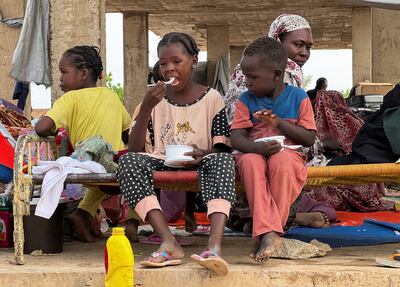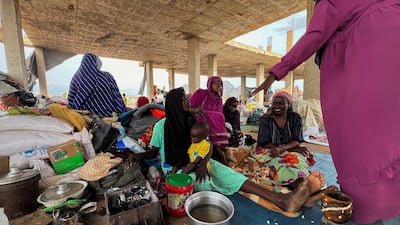Talks between representatives of Sudan's army-backed government and US officials have ended without agreement on whether the military would participate in ceasefire negotiations, due later this week in Geneva, the chief of the Sudanese delegation said on Sunday.
The consultations, held in Jeddah, Saudi Arabia, were requested by the Sudanese government. Their inconclusive end was announced by the head of the Sudanese delegation, Minerals Minister Mohammed Abu Nimo.
“The matter of Sudan's participation is now left to the leadership [army chief Gen Abdel Fattah Al Burhan] and its assessment,” said Mr Abu Nimo in a statement. “There certainly are many details that prompted us to decide to end the consultations without an agreement.”
He did not identify the differences that led to the inconclusive end of the negotiations. There has also been no word yet from Gen Al Burhan on whether he would send a delegation to the talks in Switzerland, which are scheduled to begin on August 14. The US has not commented on the end of the consultations.
The paramilitary Rapid Support Forces, which has been fighting the Sudanese Armed Forces in a ruinous civil war since April 2023, have said they would participate.
The RSF are led by Gen Al Burhan's former ally, Gen Mohamed Dagalo.

Besides the US, the negotiations were to include delegates from Saudi Arabia, the UAE, Egypt, the African Union and the United Nations. The eight-nation regional group known as IGAD, the Intergovernmental Authority on Development, was also expected to participate.
The war in Sudan broke out when weeks of tension between the army and the RSF over their future in a hoped-for democratic Sudan boiled over into violence, with fighting engulfing the capital Khartoum as well as western and southern Sudan.
Millions in Sudan now face hunger with famine declared in a large camp for the displaced in the western region of Darfur. At least 10 million people, nearly 20 per cent of the country's population, have been displaced by the fighting.
Both the army and the RSF are accused of war crimes, with the paramilitary facing charges of ethnically-motivated attacks in Darfur and sexual assault. The army is accused of killing hundreds of civilians in air strikes targeting RSF positions located in populated areas.
The US and Saudi Arabia mediated ceasefire talks in Jeddah during the early days of the war, leading to a string of truces that proved short-lived or were completely ignored.
The army has since rejected several invitations from the mediators to resume the talks, insisting that the RSF must first vacate private homes and state installations they have occupied since the start of the war.
Sources close to the consultations in Jeddah said the government's representatives rejected a US request that it send a delegation headed by a senior army commander to this week's talks.
Another point of contention was the Sudanese delegation's request that IGAD be excluded from the process, they added.
The army has accused the bloc, whose eight members are drawn from East and the Horn of Africa as well as the Great Lakes regions, of bias towards the RSF.
Gen Al Burhan has on several occasions reacted angrily to foreign parties according a semblance of legitimacy to the RSF, which he and his aides brand as mutinous and treasonous.

